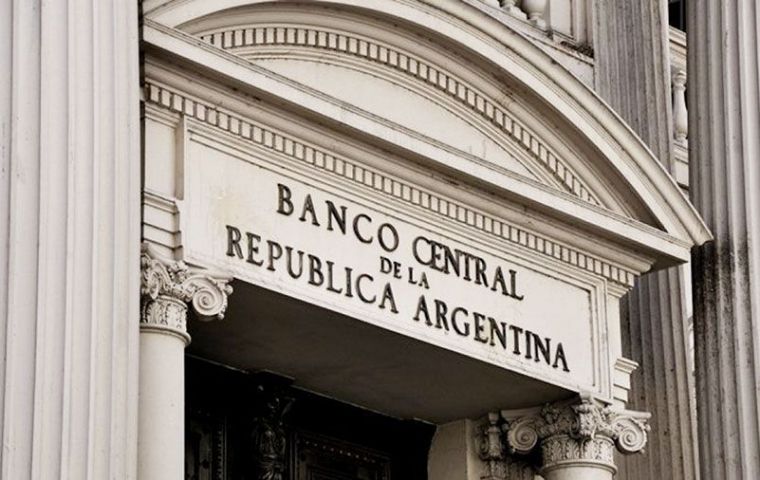MercoPress. South Atlantic News Agency
Economists forecast Argentina's inflation to near 3%
 The REM did not include recent shakeups from Trump's tariffs
The REM did not include recent shakeups from Trump's tariffs Argentina's Central Bank's (BCRA) issue of the Market Expectations Outlook (Relevamiento de Expectativas del Mercado - REM) released Monday with data collected between March 27 and 31 among 39 experts raised the inflation forecast for last month to 2.6% from the previous 2.2%, which would represent an acceleration from January’s 2.2% and February’s 2.4%.
The National Institute of Statistics and Census (Indec) is to publish the official figures this coming Monday, with yoy inflation projected to stand at 117.8%, according to analysts in Buenos Aires.
It is worth noting that this upward revision did not include recent shakeups stemming from US President Donald Trump's tariffs spree, which affected economies worldwide and could further rattle Argentina's feeble situation under President Javier Milei.
Experts also adjusted annual projections to 27.5% (up 4.2 points), delaying expected disinflation. Monthly inflation is now anticipated to drop below 2% in June (1.8%), with April and May revised to 2.2% and 2%, respectively.
Key drivers include regulated prices (e.g., medical insurance, schools, utilities) and food costs, particularly vegetables and meat. Consulting firms like Eco Go, PxQ, LCG, Politikón, and Equilibra predict March inflation between 2.7% and 3%.
On the economic front, the official exchange rate projection for the dollar by year-end 2025 rose to $1,253 (up $78), a 22.8% increase. GDP growth forecasts were slightly optimistic, with a 1.5% rise expected for Q1 2025 and a 5% annual increase over 2024, though supermarket sales continue to decline. The data reflects growing inflationary pressures and shifting economic expectations amid global market turbulence.
There is consensus that inflation will be accelerating for two months, although the projected 2.6% hides some items that point to a number even closer to 3%, it was explained.
For Eco Go, the Indec CPI will reach between 2.9% and 3%, while PxQ projected a 3% inflation. LCG, on the other hand, expects the data to show a 2.7% increase. Politikón projected the same figure. Equilibra also expects 2.7%, with the return to school driving prices upward but also with a strong impulse from tariffs and food.
”In March, regulated prices registered an increase of 2.8%, driven by increases in prepayments (2.5% average), private schools (6%), buses in PBA (10%), electricity (1.5%), gas (1.7%) and water (1%), among others. Seasonal prices recorded an increase of 4.7% in the month, contributing to keeping the indicator up. Particularly noteworthy were the increases recorded in the price of vegetables, which averaged 12.2%,” Eco Go said.




Top Comments
Disclaimer & comment rulesCommenting for this story is now closed.
If you have a Facebook account, become a fan and comment on our Facebook Page!